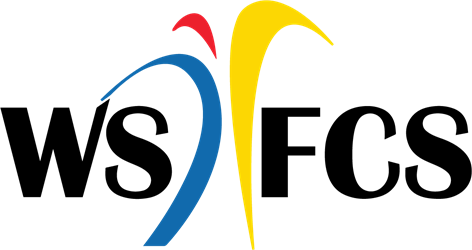"Deaf people can do anything hearing people can do, except hear."
- I. King Jordan, the first deaf president of Gallaudet University
 September is Deaf Awareness Month. Two students at The Children's Center (TCC) are not only deaf, but have visual impairments as well, meaning they are deafblind. Deafblind is a combination of vision and hearing loss. It encompasses a spectrum from mildly hard of hearing and mildly visually impaired to totally deaf and blind, including combinations of the severity of vision and hearing loss.
September is Deaf Awareness Month. Two students at The Children's Center (TCC) are not only deaf, but have visual impairments as well, meaning they are deafblind. Deafblind is a combination of vision and hearing loss. It encompasses a spectrum from mildly hard of hearing and mildly visually impaired to totally deaf and blind, including combinations of the severity of vision and hearing loss.
To meet these students' needs and help them reach their highest potential, each one is assigned a deafblind intervener who is a member of the TCC staff. An intervener is a person who works consistently one-to-one with a deafblind student to help them gather information, develop and use communication skills, and establish relationships. The interveners at TCC bring a unique perspective to their positions, as both have hearing loss.
Keyonna Murrell has been on staff for two years as an instructional assistant and was recently certified as a deafblind intervener. Murrell became deaf at the age of three months, suffering a high fever from a severe ear infection and RSV (respiratory syncytial virus). She first learned sign language at six months old when her mother took a sign language class.
Murrell says her new position is a challenge for her as she is getting to know her student and learning how to meet their needs. Even acknowledging the challenge, Keyonna embodies a determination that is inspiring.
"Being deaf doesn't stop me from doing what hearing people do,” Murrell said. “I am just like everybody else! Never give up!"
Antoinette Conrad, who is hard of hearing, also serves as a deafblind intervener. She lost hearing as a result of cancer treatment when she was four years old and learned sign language at the age of seven. Conrad's hearing loss is more severe in her left ear, and she reads lips most of the time in conversation.
 Three years ago, she decided to pursue certification as an intervener, wanting to make a difference in a child's life and education. If you talk with Conrad, it is obvious that she loves what she does. She is currently working toward national certification for deafblind intervention.
Three years ago, she decided to pursue certification as an intervener, wanting to make a difference in a child's life and education. If you talk with Conrad, it is obvious that she loves what she does. She is currently working toward national certification for deafblind intervention.
Deafblind interveners typically are not deaf themselves. Murrell and Conrad have greatly increased deaf awareness at The Children's Center, given their unique circumstances and dedication to their students.
Thank you, ladies, for making a difference.
Submitted by Terri Bordeaux, Webmaster for The Children’s Center

